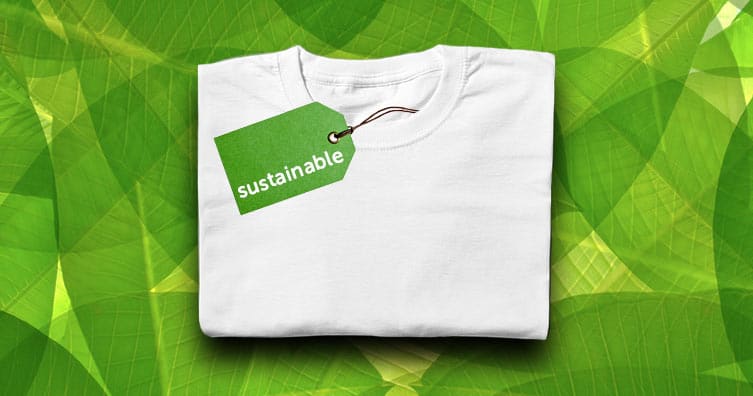Cape Town Sustainable Fashion: Eco-Friendly Trends to Watch
Cape Town Sustainable Fashion: Eco-Friendly Trends to Watch
Blog Article
Remain Ahead of the Curve by Exploring Ingenious Style Trends
In a market as vibrant as style, remaining in advance involves even more than just adhering to present patterns-- it demands an exploration of advancement. Smart fabrics, for example, are changing garments right into useful work of arts, while 3D printing is revolutionizing design procedures with its customizable, waste-reducing abilities. As sustainability becomes a foundation, developments like environmentally friendly products and round fashion methods are reshaping ecological responsibility - Cape Town Sustainable Fashion. Moreover, the convergence of modern technology and fashion heralds a new era of consumer interaction. Exactly how, then, can these emerging fads redefine the future of style, and what ramifications do they hold for brand names looking for to grow in this advancing landscape?

Accepting Smart Textiles
Over the last few years, the apparel industry has actually observed a transformative change with the integration of clever fabrics, an advanced advancement that blends modern technology with material. This advancement represents not just a fusion of visual appeals and capability however additionally a considerable jump in the direction of sustainability and customization in vogue. Smart fabrics, also referred to as e-textiles, installed sophisticated electronic devices such as sensing units and conductive strings within the textile, allowing garments to engage with the wearer or the setting.
These textiles are created to check physiological specifications, such as heart rate or body temperature level, supplying real-time health analytics. Past health applications, clever textiles are additionally being made use of for adaptive garments, which can alter color or pattern in reaction to environmental stimulations, therefore providing a vibrant fashion experience.
Additionally, the advancement of energy-harvesting textiles that generate power from motion or sunlight is leading the way for self-sufficient wearable technology. This technology is attracting environmentally aware consumers and designers aiming to reduce the environmental impact of fashion. As r & d in this area development, smart fabrics are expected to come to be significantly widespread, reshaping the landscape of modern-day style with their multifunctional capacities.
The Rise of 3D Printing
Changing the production landscape, 3D printing has actually emerged as a game-changer in the garment industry. This sophisticated innovation has made it possible for developers to press the boundaries of imagination, creating complex and personalized garments that were formerly unbelievable. By leveraging digital layout and additive manufacturing, 3D printing promotes the creation of complex geometries and patterns, enabling developers to explore brand-new appearances and frameworks.
A significant advantage of 3D printing in vogue is its capacity to create on-demand, lessening waste and lowering inventory needs. This performance not just enhances production processes yet likewise enables quick prototyping, enabling developers to bring their visions to life in a much shorter duration. Moreover, 3D printing sustains personalization to a degree unrivaled by traditional approaches, using customized fits and unique layouts tailored to specific customer preferences.
The surge of 3D printing has actually also equalized fashion, making it available to arising designers that can currently make high-grade items without significant monetary investment in traditional manufacturing facilities. As technology continues to advance, the fashion business is positioned to harness the full possibility of 3D printing, discovering new products and techniques that will most certainly redefine how style is conceived and produced.
Sustainable Style Advancements
As the style sector faces journalism requirement for ecological responsibility, sustainable fashion advancements have arised at the center of transformative change. The expanding awareness of ecological impact has actually fueled a change towards even more eco-conscious techniques and products. Developers and brands are now focusing on sustainability, integrating methods that reduce waste and lower carbon impacts.
One considerable growth is the surge of round fashion, which stresses recycling and upcycling to expand the lifecycle of garments. This technique not only minimizes waste yet additionally urges customers to embrace a much more conscious strategy to garments consumption. Furthermore, using lasting products, such as organic cotton, hemp, and recycled polyester, has actually gotten traction. These products need much less water and energy throughout manufacturing, significantly minimizing ecological influence.
Another innovation hinges on the fostering of ingenious dyeing strategies that make use of all-natural dyes or waterless procedures, therefore reducing the huge amounts of water and chemicals typically utilized in textile dyeing. In addition, improvements in biotechnology have resulted in the development of lab-grown natural leather and textiles, offering ecologically friendly and cruelty-free alternatives to traditional materials. With these introducing initiatives, the garment industry is making purposeful strides towards a much more lasting future.

Tech-Integrated Clothing
Tech-integrated garments represents a revolutionary combination of style and technology, reshaping how people engage with their garments. This ingenious domain is marked by the addition of wise fabrics and ingrained digital parts, boosting both functionality and visual charm. From health and fitness trackers embedded in sportswear to heated jackets managed via Check This Out smart device apps, tech-integrated garments offers customers unprecedented benefit and flexibility.
Introducing brand names are driving this pattern, concentrating on developing garments that reply to environmental stimuli or customer commands. For circumstances, some garments can change color or pattern in reaction to temperature shifts, while others include biometric sensing units to check health metrics like heart rate or anxiety degrees. The seamless integration of modern technology right into fabrics likewise reaches ecological sustainability, with efforts to create self-cleaning textiles or garments that get used to climate condition, therefore minimizing the demand for numerous layers.
Additionally, the arrival of wearable technology is not simply limited to clothing but encompasses accessories like watches and eyewear, more like this expanding the extent of tech-integrated style. As the sector proceeds to innovate, the possibility for modification and customization in apparel expands, providing customers distinct, tech-enhanced fashion experiences that cater to their specific demands and preferences.
Future of Virtual Style
In current years, the future of digital fashion has actually become a transformative pressure within the market, leveraging advancements in electronic technology to redefine just how style is developed, experienced, and taken in. By incorporating enhanced truth (AR), online truth (VR), and 3D layout tools, developers can currently craft interactive and immersive experiences that go beyond conventional fashion boundaries. Digital style enables the development of garments that exist only in electronic environments, supplying countless opportunities for innovation without the restrictions of physical production.
This electronic shift not only offers chances for imaginative expression however additionally addresses sustainability issues integral in conventional fashion techniques. Cape Town Sustainable Fashion. By eliminating the requirement for physical sources, virtual fashion reduces waste and minimizes carbon impacts. Furthermore, the surge of digital style aligns with the raising customer demand for one-of-a-kind and individualized experiences, as online garments can be tailored and customized to individual choices effortlessly

Final Thought
The style industry's future lies in the integration of lasting methods and cutting-edge technologies. Digital style is poised to redefine consumer interactions.
In current years, the style market has actually seen a transformative change with the combination of wise textiles, a cutting-edge advancement that mixes technology with fabric.As the style sector grapples with the pressing need for environmental duty, lasting fashion advancements have emerged at the forefront of transformative modification.In recent years, the future of virtual fashion has emerged as a transformative force within the sector, leveraging developments in digital technology to redefine just how fashion is created, experienced, and consumed. The increase of digital fashion straightens with the enhancing customer demand for tailored and distinct experiences, as virtual garments can be customized and tailored to individual choices with convenience.
The fashion market's future lies in the integration of lasting techniques and cutting-edge modern technologies.
Report this page